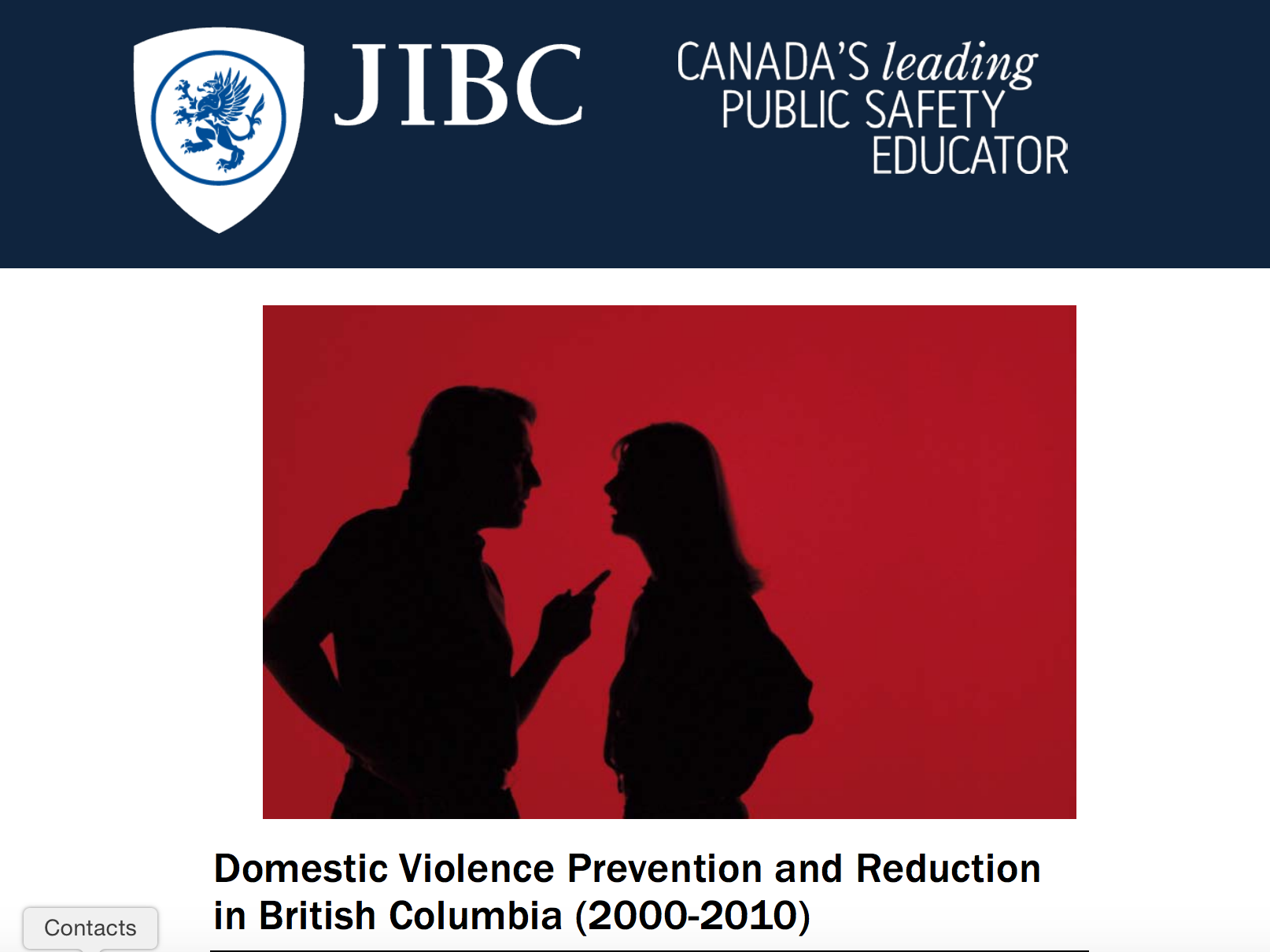The following resource is part of the Family Violence Initiative, funded by the RCMP. Find similar tools by searching for the FVIF tag or consult the list of available resources.
 "This report reviews domestic violence prevention and reduction initiatives in British Columbia (BC), from 2000-2010, and more recently.
"This report reviews domestic violence prevention and reduction initiatives in British Columbia (BC), from 2000-2010, and more recently.
The review was undertaken to support the work of the Violence Reduction Circle, a collaborative group of researchers, policy makers, clinicians, and service providers, hosted by the Centre for the Prevention and Reduction of Violence at the Justice Institute of BC.
The review begins with a description of the process, which involved a comprehensive scan of online sources and key informant interviews with academic and community-based researchers, policy makers, service providers, and advocates. The author then outlines the various terms used to describe domestic violence against women, and justifies the use of this term to reflect the language adopted in provincial policy without losing the gendered language of feminist scholars. The report goes on to present the latest statistical data on rates of domestic violence in Canada and British Columbia, before summarizing the health, social, and economic costs of domestic violence against women, and the effects on children who witness.
The review defines three levels of prevention strategies (primary, secondary, and tertiary), which are conceived of as interdependent and mutually reinforcing strategies to prevent and reduce violence against women and to increase the safety of women and children. The body of the report reviews domestic violence prevention and reduction initiatives in BC over the past decade, including relevant legislation and policy, training initiatives for service providers across systems, and efforts to strengthen the community response to domestic violence, including public awareness campaigns. The author makes the point that key decisions pertaining to domestic violence legislation, policy, funding, and services are closely linked to changes in government and high-profile cases of domestic violence and domestic homicide that serve to open policy windows."
Source: Justice Institute of British Columbia

















